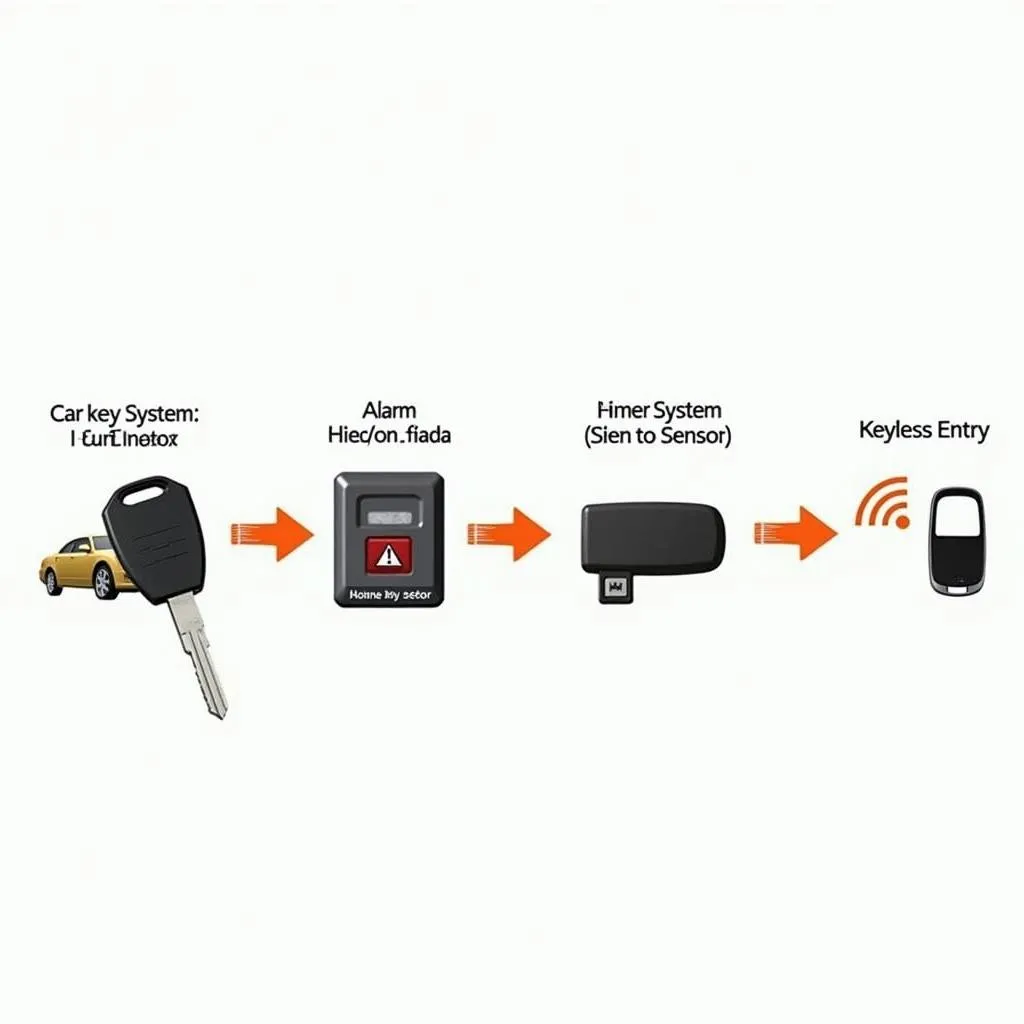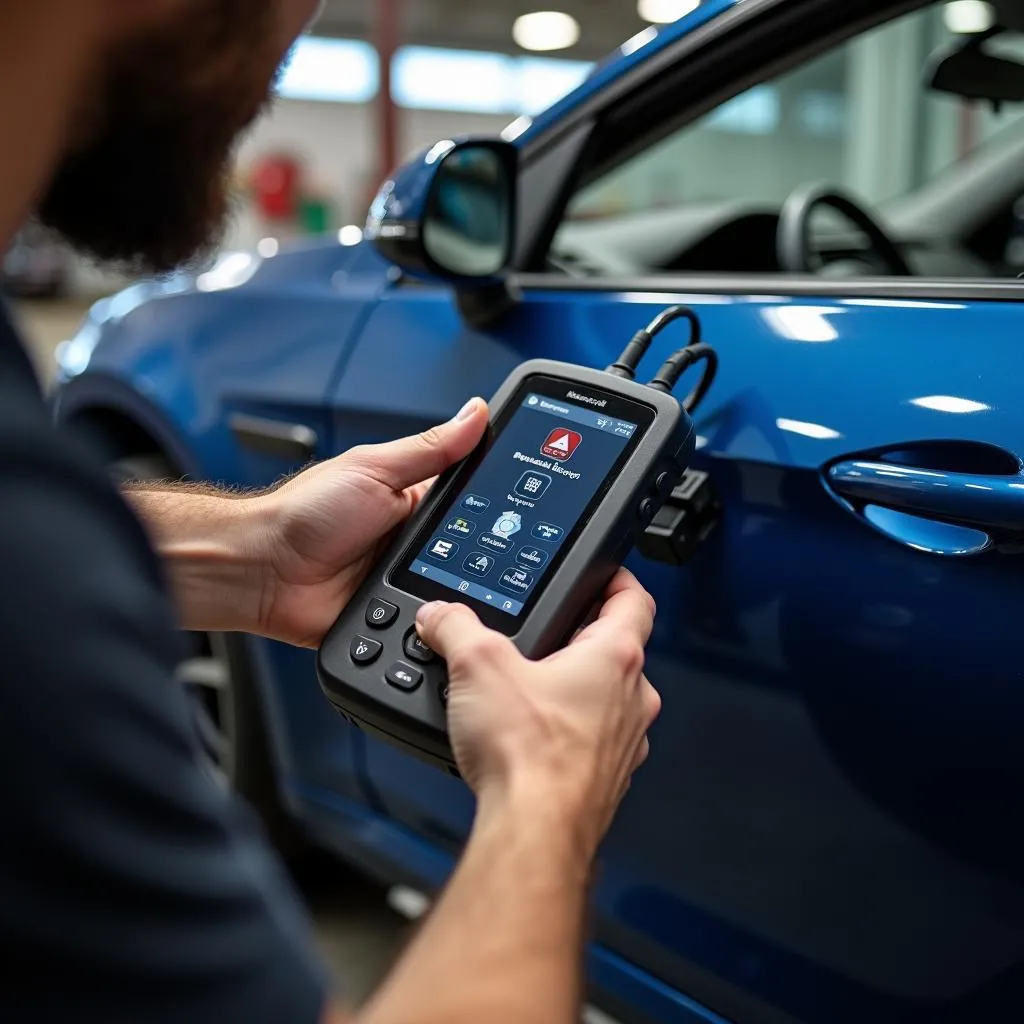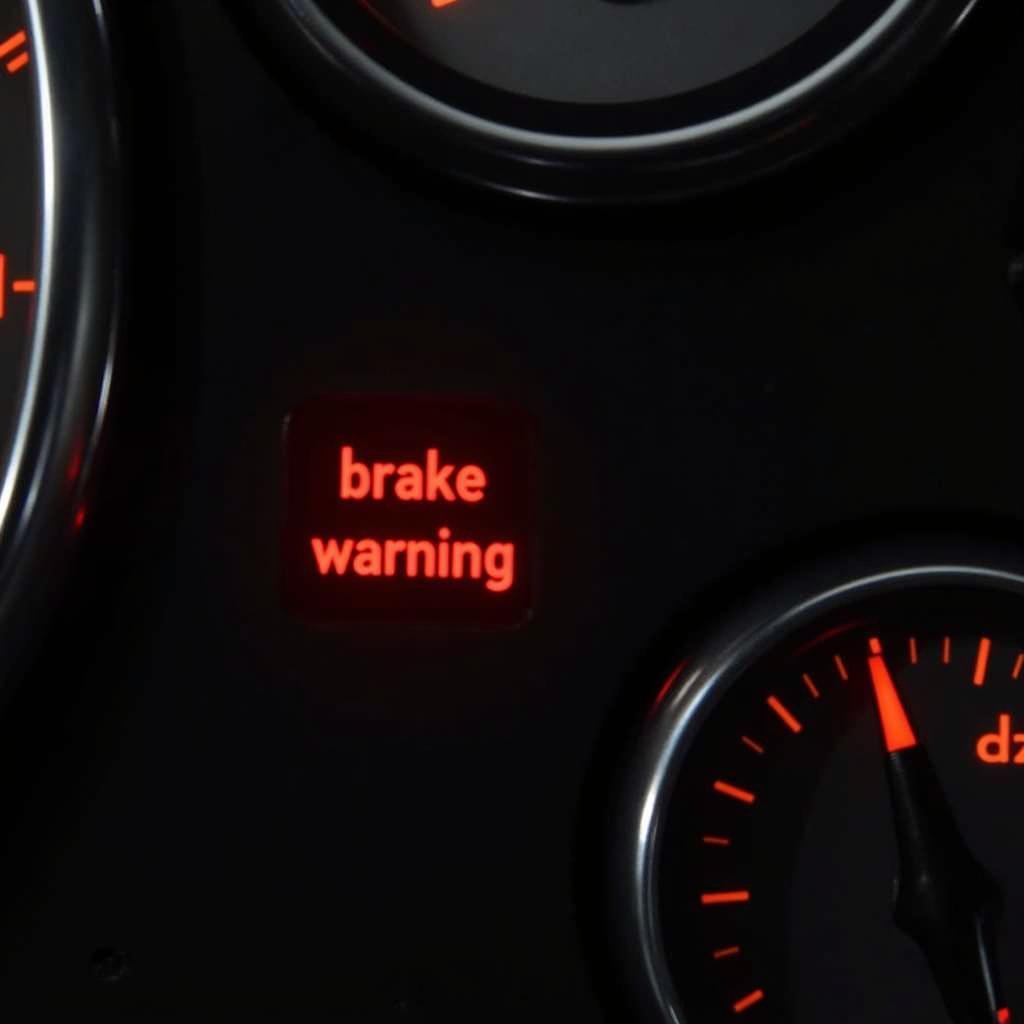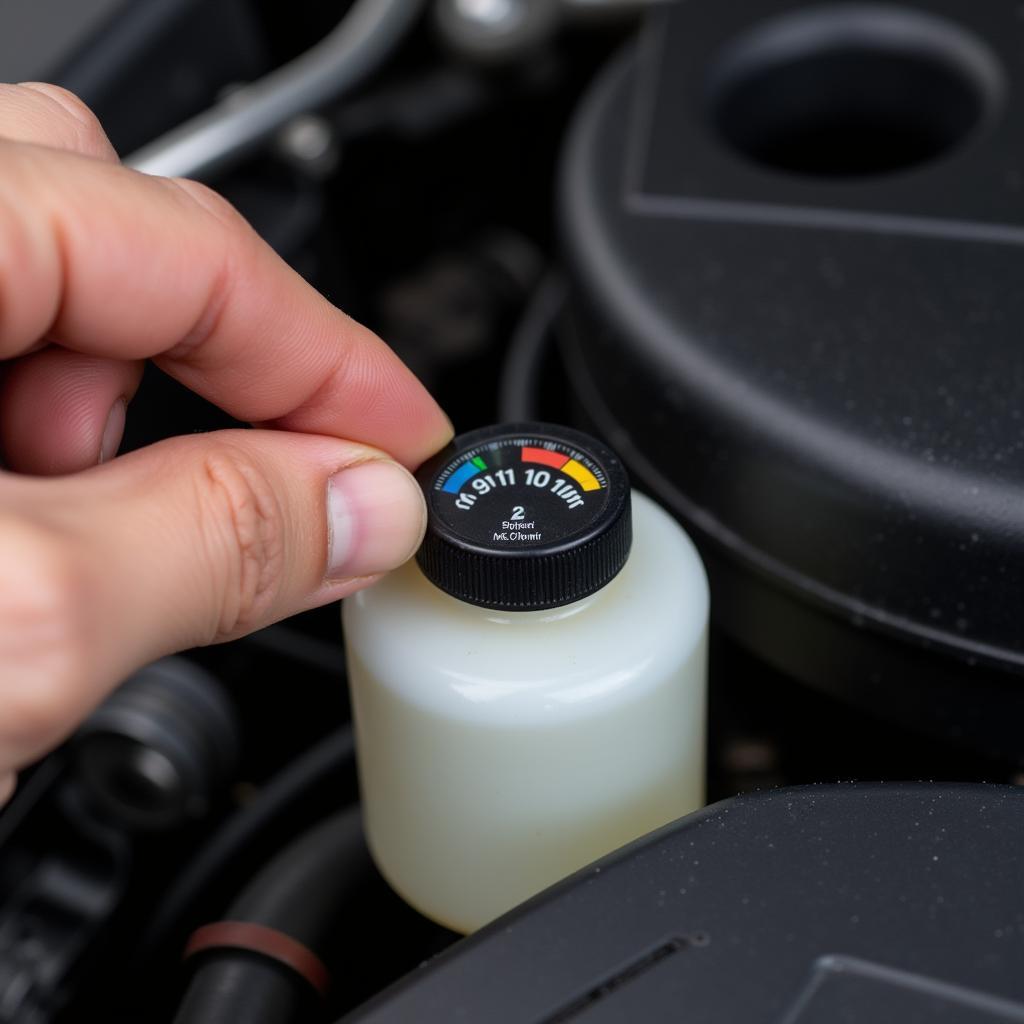Dealing with a malfunctioning car anti-theft system can be incredibly frustrating. Whether you’re locked out of your own vehicle or dealing with a recurring alarm issue, you need a solution – and fast. This guide provides a detailed walkthrough of common anti-theft system problems and how to address them.
Understanding Car Anti-Theft Systems: Why They Lock You Out
Modern vehicles heavily rely on sophisticated electronics, and the anti-theft system is a key player. This system utilizes various components, including:
- Immobilizer: Prevents the engine from starting without the correct key present.
- Alarm System: Triggers audible and visual warnings when it detects a potential threat.
- Keyless Entry System: Uses radio frequencies to lock and unlock your car doors remotely.
When these systems experience glitches, it can lead to several issues such as:
- False alarms
- Inability to start your car
- Doors locking and unlocking erratically
Identifying the Root of the Problem: What’s Setting Off Your System?
Before jumping into solutions, it’s crucial to pinpoint the cause of your anti-theft system malfunction. Here are some telltale signs and their potential meanings:
- Rapid flashing car lights: Could indicate a problem with the car alarm system.
- Clicking sounds when starting the car: Often signifies a problem with the starter or ignition system, which may be linked to the immobilizer.
- Key fob not working: The battery in your key fob might be dead, or there could be a problem with the keyless entry system itself.
 Car Anti-theft System Components
Car Anti-theft System Components
Tools of the Trade: What You Need for the Job
Depending on the nature of your anti-theft system issue, you may need a few basic tools to help resolve it:
- Your car’s owner’s manual: This is your go-to resource for information specific to your vehicle’s anti-theft system.
- A spare car key or key fob: If a dead battery in your primary key fob is the culprit, a spare will come in handy.
- A voltage meter: Useful for checking your car battery and key fob battery.
Troubleshooting Your Anti-Theft System: Step-by-Step Solutions
Here’s a step-by-step approach to common anti-theft system issues:
1. Check Your Car Battery:
A weak or dead car battery can often disrupt the anti-theft system. Check the voltage using a voltmeter. If it’s low, jump-starting or replacing the battery might do the trick.
2. Replace Your Key Fob Battery:
If your key fob isn’t responding, a dead battery might be the issue. Consult your owner’s manual for instructions on replacing the battery.
replacing-car-key-fob-battery|Replacing Car Key Fob Battery|A series of 3-4 images showing the steps to replace a car key fob battery. Images should include:
1. Opening the key fob casing,
2. Identifying the type of battery,
3. Carefully removing the old battery, and
4. Inserting the new battery correctly.
3. Resync Your Key Fob:
Sometimes the connection between your key fob and the car’s system can be lost. Many vehicles have a resynchronization procedure outlined in the owner’s manual.
4. Inspect the Fuse Box:
A blown fuse related to the anti-theft system can cause malfunctions. Locate the fuse box and refer to your owner’s manual to identify the correct fuse.
5. Seek Professional Help:
If the problem persists, it’s time to call in the experts. A qualified automotive electrician or a specialized mechanic can diagnose and repair more complex issues with your car’s anti-theft system.
Frequently Asked Questions
Here are answers to some common questions about car anti-theft systems:
Q: Can I disable my car alarm myself?
A: While it’s technically possible to disable some aspects of your car alarm yourself, it’s generally not recommended unless you have a thorough understanding of car electronics. Tampering with the system incorrectly can lead to more significant issues.
Q: My car won’t start, but there’s no alarm. What could be wrong?
A: This could point to a problem with the immobilizer system. As mentioned earlier, the immobilizer prevents the engine from starting without the proper key signal. Issues with the immobilizer often require professional diagnosis and repair.
Q: Are there diagnostic tools that can help me with anti-theft system issues?
A: Yes, there are! Professional-grade automotive diagnostic tools can read and interpret the codes generated by your car’s computer, including those related to the anti-theft system. These tools can be invaluable for pinpointing the source of the problem. “When dealing with intricate electronic systems like a car’s anti-theft module, utilizing a high-quality diagnostic tool is essential,” says automotive electronics expert, Dr. Emily Carter, author of “Modern Automotive Electronics Decoded.” “These tools provide a window into the system’s operations, allowing for accurate diagnosis and efficient repairs.”
 Mechanic Using Diagnostic Tool on Car
Mechanic Using Diagnostic Tool on Car
Cardiagtech: Your Partner in Automotive Diagnostics
For those seeking professional automotive diagnostic solutions, Cardiagtech offers a range of high-quality products designed to make vehicle troubleshooting easier and more efficient. To explore their range of diagnostic tools and software, visit Cardiagtech.
Taking the Next Step: Don’t Let Your Car’s Security Leave You Stranded
Experiencing issues with your car’s anti-theft system can be stressful. By following the steps outlined in this guide, you’ll be well-equipped to tackle common problems. However, if the issue persists or you’re uncomfortable working on your car’s electronics, don’t hesitate to seek help from a qualified automotive electrician or mechanic. They have the expertise and specialized tools to diagnose and repair complex anti-theft system issues, ensuring your car’s security system functions flawlessly and you stay safe on the road.



